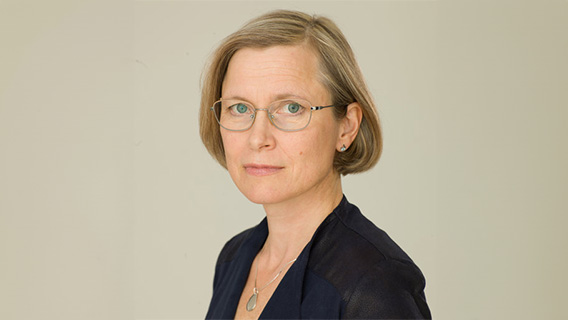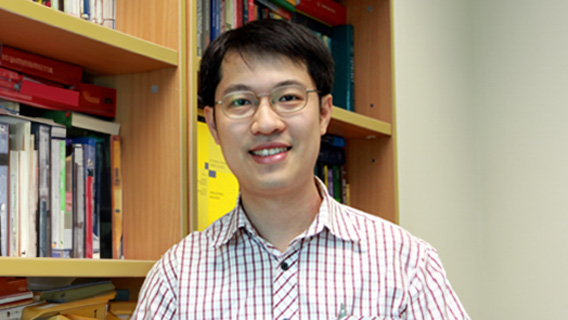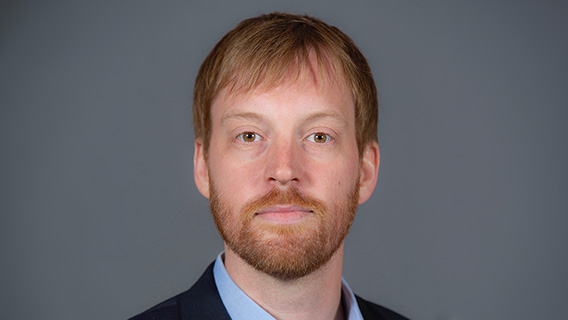Plenary Speakers
Keynote Session 1

Revisiting language across disciplines in the age of EMI and AI
Prof Maria KUTEEVA
Professor of English linguistics, Stockholm University
Time: 10.05 – 11.05 (HKT), 3 December 2024
Venue: TU201
Abstract: Recent research shows that disciplines are not set in stone, as there is a great deal of intra-disciplinary variation as well as interdisciplinarity (e.g. Trowler, 2014). Objects of study, research methodologies, and contextual factors can impact academic discourses and knowledge-making practices more than disciplinary labels. Further, recent debates across a wide range of research communities call for an increase in knowledge perspectives, e.g. in order to address imbalances between Global North and South (Heidt, 2023). In this context, AI-supported tools are seen as a way to address systemic biases (Nature Editorial, 2023). Drawing on the theoretical framework inspired by Bakhtin (Kuteeva, 2023), my talk zooms in on different dimensions of language – normative, socio-ideological, and interactional – in the context of increasing use of English medium instruction (EMI) and emergence of AI-supported large language models (LLMs), such as Chat-GPT. Although the way in which LLMs operate is reminiscent of the seminal 'examine and report back’ methodology (Swales and Feak, 2004) developed to teach academic writing, these models lack agency, metacognition, knowledge of the local context, and understanding of how the human language works. Thus, it is possible that LLMs will drive both language use and knowledge construction towards further homogeneity, reinforcing existing biases and inequalities (Kuteeva & Andersson, fc.). Whereas LLMs can be useful for facilitating access to so far occluded genres and for providing translations, they are far from humans when it comes to linguistic creativity, particularly across languages, registers and styles. This is the area where university stakeholders, e.g., academic writing instructors, have the upper hand and can draw on their knowledge of socio-material contexts and entire communicative repertoires to develop students’ rhetorical knowledge and critical stance. As recent research in EMI underscores the specificity of local educational settings and multilingual practices, I will look at ways to foster collaboration between EMI and EAP/EAD and consider both the affordances and limitations of LLMs to support literacy practices.
Bio: Maria KUTEEVA is Professor of English linguistics at Stockholm University. She received her PhD (1999) in English studies from the University of Manchester. Her research has focused on academic discourse analysis and explored how English is used by students and academic faculty in multilingual university settings. Kuteeva’s publications have engaged with scholarly debates surrounding ontologies and roles of English in research and education. She has held visiting researcher positions at the University of Wisconsin, Madison (2013) and the University of Helsinki (2018). In 2021 she was an Erik Allardt research fellow at the Helsinki Collegium for Advanced Studies. Kuteeva’s work has appeared in international peer-reviewed journals, such as Applied Linguistics, English for Specific Purposes, Journal of English for Academic Purposes, Journal of Second Language Writing, Higher Education, and Journal of Multilingual and Multicultural Development. Recent books include Language Perceptions and Practices in Multilingual Universities (2020, Palgrave Macmillan, with Kaufhold and Hynninen) and Tension-filled English at the Multilingual University: A Bakhtinian Perspective (2023, Multilingual Matters). She serves on the editorial boards of several international journals and is co-editor-in-chief of Ibérica: Journal of the European Association of Languages for Specific Purposes.
Keynote Session 2

Designing and Implementing Writing Components in STEM Courses
Prof Anthony Man-Cho SO
Dean, Graduate School/ Deputy Master, Morningside College/ Professor, Department of Systems Engineering and Engineering Management, The Chinese University of Hong Kong
Time: 13.35 – 14.35 (HKT), 3 December 2024
Venue: TU201
Abstract: Teaching in STEM disciplines typically focuses on training students’ technical and problem-solving skills. What is often neglected is the training of students’ technical writing skills. A well-designed writing component in a STEM course can provide students with an opportunity to reflect on and take control of their own learning, to actively construct knowledge, and to practice some features of discourse in the discipline. In this talk, I will share my experience of designing and implementing a writing component in an undergraduate-level engineering mathematics course and reflect on the lessons learned so far as we enter the GenAI era.
Bio: Professor Anthony Man-Cho SO is currently Dean of the Graduate School, Deputy Master of Morningside College, and Professor of the Department of Systems Engineering and Engineering Management at The Chinese University of Hong Kong (CUHK). Professor So has been a Fellow of the Institute of Electrical and Electronics Engineers (IEEE) since 2023 and an Outstanding Fellow of the Faculty of Engineering at CUHK since 2019. He serves on the editorial boards of several journals in the field of mathematical optimization, including Mathematical Programming, Mathematics of Operations Research, and SIAM Journal on Optimization. Professor So has received a number of research and teaching awards, including the 2016-17 CUHK Research Excellence Award, the 2010 CUHK Young Researcher Award, the 2022 University Grants Committee (UGC) Teaching Award (General Faculty Members Category), and the 2022 CUHK University Education Award.
Keynote Session 3

Generative AI and Writing Literacies: Applications for WAC/WID
Prof Abram ANDERS
Jonathan Wicker Professor of Innovation and Associate Director of the Student Innovation Center, Iowa State University
Time: 09.30 – 10.30 (HKT), 4 December 2024
Venue: TU201
Abstract: Recent studies of generative AI have demonstrated positive impacts on writing and communication performance in both academic and professional contexts. With its capabilities for the responsive creation of text and media, generative AI can support diverse multimodal communication tasks in Writing Across the Curriculum (WAC) and Writing in the Disciplines (WID) contexts. Whether focused on learning to write or writing to learn, generative AI can be leveraged to design learning experiences that promote both writing and rhetorical fluency and free up cognitive capacity for higher-order learning. Most significantly, generative AI may enable scalable ways to provide more responsive and personalized feedback to students at critical moments in writing and learning processes both in individual courses and across university-wide programs. Developing innovative applications of generative AI for WAC and WID is not without its challenges. Concerns exist about potential negative effects on student learning including overwhelm, overreliance, or diminished autonomy. Similarly, educators must navigate a steep learning curve to utilize these tools responsibly and productively. To support these efforts, this presentation proposes a model for teaching and learning generative AI literacies integrating three essential elements: generative AI knowledge and skills; disciplinary knowledge and skills, and capacities for self-regulated learning (SRL)–which empower learners to act as 'humans in the loop' and actively oversee AI-assisted writing and communication processes. This model is supported by findings from a study in which students completed creative projects involving situated disciplinary applications of generative AI. Students in this study demonstrated use of SRL strategies and experienced statistically significant growth in self-efficacy for generative AI literacies. Based on this framework, the presentation will demonstrate promising applications for WAC and WID programs and offer directions for future research.
Bio: Prof Abram ANDERS is the Jonathan Wickert Professor of Innovation and Associate Director of the Student Innovation Center at Iowa State University. His research expertise includes business and professional communication, communication and writing pedagogy, generative artificial intelligence, and human-centered design. His research has appeared in Business and Professional Communication Quarterly, College English, Computers and Composition, Computers and Education, International Journal of Business Communication, Disability Studies Quarterly, and the International Review of Research in Open and Distributed Learning, as well as in edited collections. His current research explores artificial intelligence and writing and the development of student innovation capacities. He has served in multiple leadership roles at Iowa State University. As Director of ISUComm Foundation Courses, Prof Anders led the redesign of first and second-year multimodal composition courses at Iowa State to integrate principles of project-based learning with significant positive impacts on student retention and academic success for 5200 students annually. He also led a human-centered design project that developed an inclusive peer mentoring program for graduate teaching assistants. In his current position as Associate Director of the Student Innovation Center, he leads programs that promote interdisciplinary collaboration and help students turn their world changing ideas into action. Prof Anders was recently recognized with the 2023 Dean’s Arts and Humanities Innovation Award at Iowa State University and the 2022 Outstanding Article in the International Journal of Business Communication Award.
Learn more at https://abramanders.com/WAC/WID